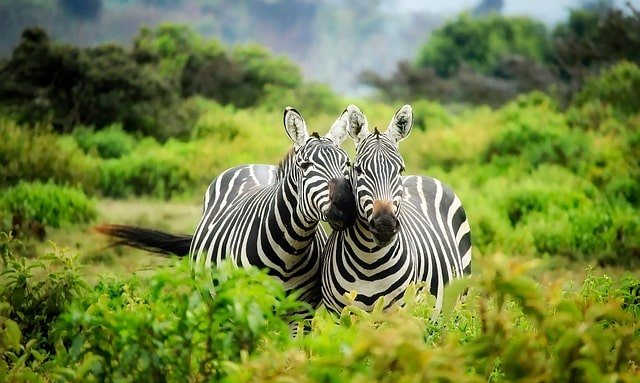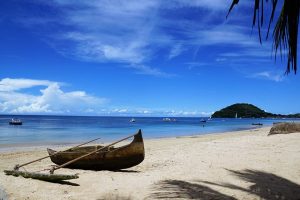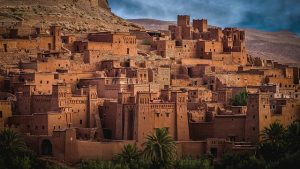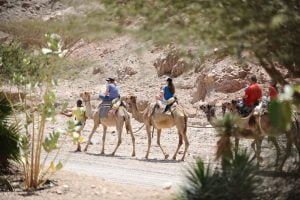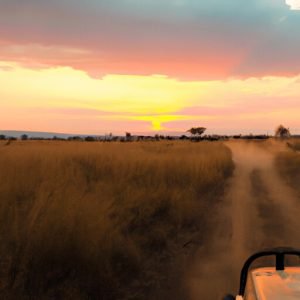Safari trips buy Africa
Advance preparations
visa: Entry of Israelis to Kenya is conditional on a tourist visa issued online at a cost of 50 dollars. The visa can be obtained from the registered website of the Kenyan government or by using Israeli websites that provide support with a low fee. For a tourist visit of up to 90 days, it is not necessary to use the Kenya embassy to issue a visa.
Vaccines: In addition to travel clinic recommendations on medications and vaccinations that change, Entry to Kenya is conditional on presenting a vaccination record that proves yellow fever vaccination at least 10 days before entering the country. This is the first document checked upon entering Kenya and entry into the country will not be possible without the vaccination. If you found yourself without a register that proves you are vaccinated upon entering the country, you can choose between returning to Israel or being vaccinated on the spot, it is not possible to enter without a vaccination!
Why Kenya?
The continent of Africa is visited by tourists from all over the world, with the absolute majority of tourism in Africa draining to viewing and exploring wildlife. Africa is one of the largest natural habitats in the world. Some parts of the continent are very developed in terms of construction and development, thus the wild animals were pushed to remote areas. There are several places that preserved the color of nature without interference and even went to the trouble of legally protecting the virginity of the area by defining it as a nature reserve. One of the famous areas for meeting wild animals in the open nature is called "Serengeti". One of the most successful Disney movies of all time, aka The Lion King, drew inspiration from the area and when you visit the place, you can easily see the similarity. The Serengeti region is divided between 2 countries - Kenya and Tanzania, where in the months of July and August the phenomenon of wildlife migration occurs from the Masai Mara Reserve on the Kenyan side to the Serengeti Reserve on the Tanzanian side. The migration attracts many visitors and rightly so, it is an impressive natural phenomenon that receives international coverage by leading researchers in the field of animal research. Of course, the area is active and frequented by tens of thousands of tourists throughout the year, not only during the migration season.
The Maasai Mara reserve is located in the southwest of Kenya and covers an area of 1,500 square kilometers and is the first largest reserve in all of Kenya. The name of the reserve is made up of the name of the tribe that controls the area - the Maasai tribe, and the famous Mara River that the animals cross during migration in a dramatic scenario that includes a survival journey. Encounter with territory The Maasai tribe gives visitors an authentic glimpse of the ancient village life that seems to have disappeared from the modern world.From the landscape of the villages scattered in the reserve, the local clothing to the tribal ceremonies, this is a fascinating experience even before the encounter with the wild animals.
The safari experience
There are travel packages of varying sizes that are intended for different target audiences depending on the purpose of the visit. While some expeditions come to take pictures and thus wait many days inside the reserve for the perfect picture, we chose as an initial experience the shortest package - 2 nights inside the reserve. Accommodation in the reserve is in lodges of different levels in terms of luxury and of course depending on the price. As travelers who came as part of a backpacking trip around Kenya, I would like to point out that even though we closed the relatively simple lodge safari experience among the many options, we were given the highest conditions we encountered in our entire trip. We slept in tents that I later learned to define as "glamping" tents - although these are fabric tents, they are far from an average outdoor tent! These tents are spacious and include toilets and a hot shower, electricity, comfortable and spacious beds and even a kettle and a coffee/tea corner. The included meals were basic but tasty and satisfying and we were very satisfied with the conditions of the lodge we arrived at.
Every morning the visitors are divided into groups and separated into vehicles that go out to explore the reserve. The vehicles are renovated 4x4 minibuses or jeeps that are suitable for the roads of the local terrain route. It is recommended to have a backpack that includes water, a cap and snacks (the lodge provides snacks for the day at the breakfast buffet). During the day you will come across a variety of animals scattered in the open savannahs of the reserve. Departure times vary according to the season.
The main goal that your guide will set on the first day is clear: the chance to witness the "big five" - are we talking about the five largest and most impressive animals in the reserve and they include lions, elephants, rhinos, buffaloes and tigers. In two days we met all of them except the rhinoceros who is known for his shyness. Of course, the reserve is full of other equally amazing animals such as zebras, giraffes and more. In the evenings, the Maasai members come to the lodge and perform impressive cultural dances that include the famous high jumps that set them apart from other rituals. The safari visit is suitable for all age groups and is highly recommended for families. This is a special, exciting and sometimes breathtaking experience.
For those who are interested in going on a similar trip, it is recommended to be informed in advance about visa and vaccination details that condition entry to Kenya.
Safari trip to Kenya or Tanzania?
Both Kenya and Tanzania offer amazing safari experiences, and choosing between the two largely depends on your preferences and interests. Below are several factors that should be taken into account when deciding between a safari trip in Kenya or Tanzania:
Wildlife: Both countries are home to a wide variety of wildlife, including the famous "big five" (lion, elephant, buffalo, tiger and rhinoceros). The Serengeti National Park in Tanzania is known for its annual wildebeest migration, while the Masai Mara National Reserve in Kenya also witnesses this spectacular event.
Parks and Reserves: Tanzania boasts iconic destinations such as Serengeti National Park, Ngorongoro Crater, Tarangire National Park and Selous Game Reserve. In Kenya you have the Masai Mara, Amboseli National Park, Tsavo National Parks and more.
Landscape: Tanzania is known for its vast plains, rolling hills and breathtaking landscapes, while Kenya offers varied topography, including savannahs, mountains (like Mount Kilimanjaro) and lakes (like Lake Nakuru).
Accessibility: Kenya tends to be more accessible to tourists due to its developed tourism infrastructure and frequent international flights to Nairobi. Tanzania also has good links, particularly to Kilimanjaro International Airport and Julius Nyerere International Airport in Dar es Salaam.
Safari Experience: The safari experience in both countries is exceptional. In Kenya, you can witness traditional Maasai culture, while Tanzania offers the opportunity to interact with local tribes such as the Hadzabe and the Maasai.
Crowd Levels: In general, Tanzania's parks are vast and can offer a more remote and exclusive safari experience compared to some of Kenya's more popular reserves. However, both countries have less crowded periods, so it is essential to plan your trip accordingly.
Budget: Safari costs may vary, but in general, Tanzania is considered slightly more affordable than Kenya. However, there are luxury options in both countries to suit different budgets.
Ultimately, both Kenya and Tanzania offer unforgettable safari adventures with unique experiences. You might want to consider a combination of the two countries if you have the time and budget. This way you can see a wider variety of wildlife, landscapes and cultural encounters. When planning your safari, it is essential to choose reputable tour operators who prioritize responsible and sustainable tourism practices.

